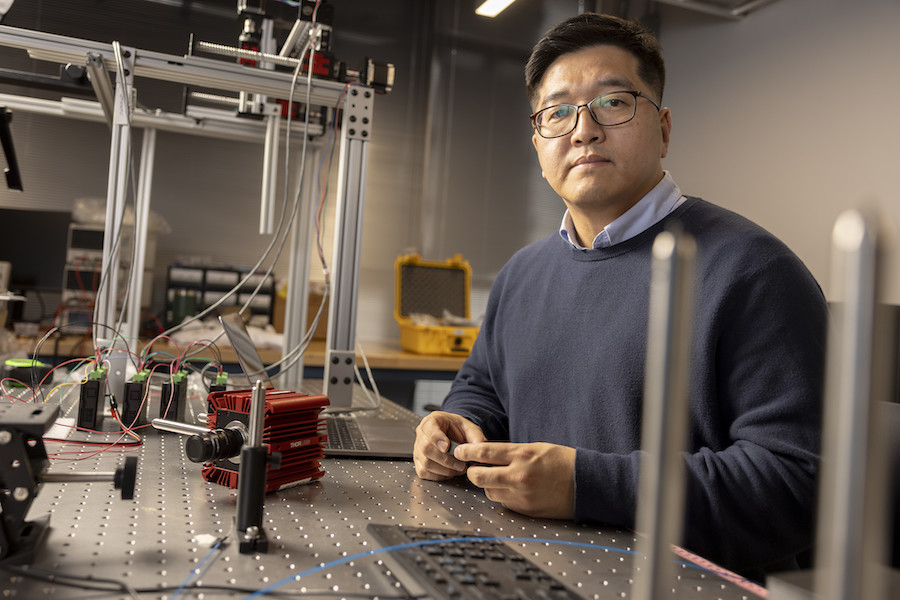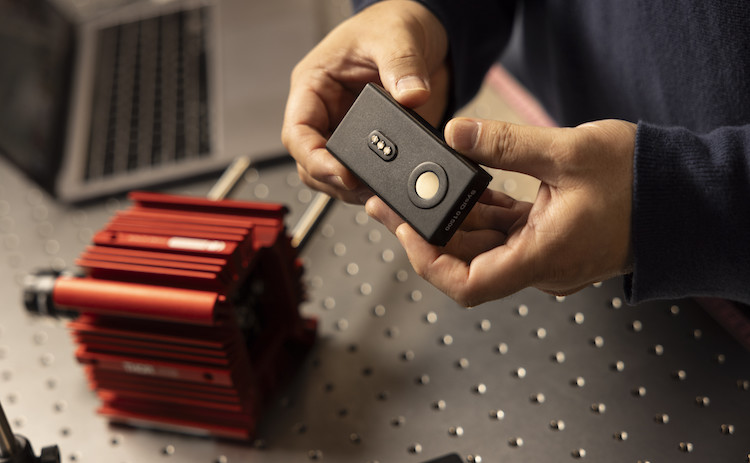

KENNESAW, Ga. | Jan 17, 2024

Kennesaw State assistant professor of biomedical engineering Paul Lee said it is his life’s mission to reduce the likelihood that children born with sickle cell disease will die from strokes, one of the most common complications. Lee has received $426,000 grant from the National Institutes of Health for a three-year study aimed at developing a more economical testing device to determine an affected child’s risk of stroke.
“Sickle cell disease affects any major organs,” Lee said. “But I’m especially interested in the brain disease aspect of it because the brain is only 3% of the body weight but uses almost 20% of the cardiac output. The brain requires adequate oxygen delivery to meet the metabolic demand for normal function. But sickle cell disease causes a lower oxygen level and abnormal perfusion in the brain, which is associated with a high risk of stroke.” Without treatment, 10% of sickle children will have a stroke before they become 10 years old.
In an advanced nation like the United States, children are more likely to receive stroke-risk screening and start some kind of blood transfusion therapy if the need is there, Lee said. In sub–Saharan African nations, there are few resources for screening. The current screening tests use an ultrasound system called a Transcranial Doppler (TCD) to identify elevated blood flow to the brain. But they aren’t affordable, and only a few hospitals in sub–Saharan Africa have the certified TCD operators.

When Lee first moved to Atlanta after earning a Ph.D. from the University of Michigan, he started working with children with sickle cell disease at Children’s Healthcare of Atlanta – home to the largest pediatric sickle cell disease program in the country.
When he joined Kennesaw State University, his goal was to advance the technology in a lower cost way using longer wavelengths of light to help children with sickle cell disease. According to the Centers for Disease Control and Prevention, people with sickle cell disease have a chronic shortage of healthy red blood cells and are also more susceptible to clots when their abnormal sickle shaped blood cells pass through small blood vessels.
“I’m passionate about being a biomedical engineer, particularly, who works on light tissue interactions,” said Lee. “I want to develop technology to use light for noninvasive tissue diagnostics. This has become my lifetime mission. It’s a long-term project, but I want to see this through.”
This project will also provide undergraduate students with comprehensive training opportunities, including computational modeling, optical device design, and human subject testing.
“I am dedicated to promoting diversity in STEM fields,” Lee said. “Since I joined KSU in 2021, 75% of my research mentees come from an underrepresented group in STEM. More undergraduate researchers from this group will work on this R15 project to address the serious global health issues in the underserved community.”
Lee hopes to have developed a prototype screening device by the conclusion of his study.
– Amanda Cook
Photos by Darnell Wilburn
A leader in innovative teaching and learning, Kennesaw State University offers undergraduate, graduate, and doctoral degrees to its more than 51,000 students. Kennesaw State is a member of the University System of Georgia with 11 academic colleges. The university's vibrant campus culture, diverse population, strong global ties, and entrepreneurial spirit draw students from throughout the country and the world. Kennesaw State is a Carnegie-designated doctoral research institution (R2), placing it among an elite group of only 8 percent of U.S. colleges and universities with an R1 or R2 status. For more information, visit kennesaw.edu.